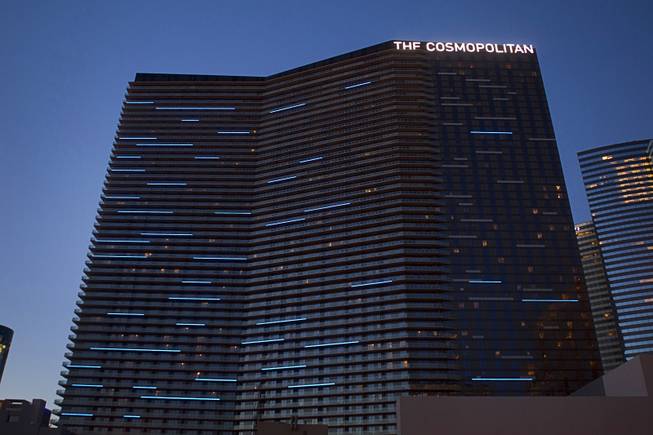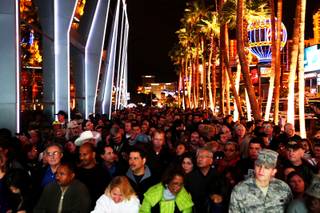Deutsche Bank sells Cosmopolitan to Blackstone for $1.73 billion
Deutsche Bank sells Cosmopolitan
to Blackstone for $1.7 billion
Published Thursday, May 15, 2014 | 7:51 a.m.
Updated 54 minutes ago
Map of Cosmopolitan of Las Vegas
Deutsche Bank AG is cutting itself free of the Cosmopolitan resort and casino, saying it's selling the swanky but unprofitable high-rise complex on the Las Vegas Strip to Blackstone Real Estate Partners VII for $1.73 billion.
The German investment bank said in a statement Thursday the cash deal remained subject to regulatory approvals. The bank had intended to sell the property from before it even opened in 2010 and had placed the Cosmopolitan in a separate bank division devoted to winding down or selling unwanted investments.
Blackstone, which owns $81 billion in real estate assets globally and describes itself as the largest opportunistic real estate investment manager in the world, is in the business of buying underperforming property and re-selling it after making improvements. It owns nearly 1,000 homes in Nevada and the upscale Hughes Center office complex in Las Vegas, as well as a small portion of Caesars Entertainment Corp.
"Blackstone recognizes the value and potential in the Cosmopolitan and Las Vegas, and looks forward to working to build on the success to date," Tyler Henritze, the company's senior managing director, said in a statement.
The last major Las Vegas resort approved before the Great Recession, the $3.9 billion Cosmopolitan, was built by Deutsche Bank AG after its original developer defaulted on a loan. Initially conceived as a condo complex, it retains large rooms and kitchenettes even though the project morphed into a hotel after the housing market crashed.
The Cosmopolitan has branded itself as a "decidedly different" kind of casino, eschewing the kitschy themes common among its competitors and catering to a more urbane gambler and club-goer with the tagline "just the right amount of wrong."
The casino is home to Marquee, one of the top-grossing nightclubs in the United States, and features a three-story bar enveloped by a giant chandelier.
But its emphasis on entertainment and celebrity-chef-run restaurants over gambling, and a smaller database of regular gamblers than its casino chain competitors, hit the resort's bottom line.
"Optimally you want to use the food and beverage as a driver for gambling," said David G. Schwartz, director of UNLV’s Center for Gaming Research. "They've definitely struggled to establish an identity as a gaming destination on the Strip."
While gambling revenues citywide remain lackluster, tourism overall is on the rebound and hotel rooms are commanding higher rates. In March, the city's average daily room rate rose 21 percent from a year earlier, according to tourism officials.
"Hotels are hot again across the board," said Leo Leyva, an attorney who advises private equity firms on acquisitions and who wasn't involved in the Blackstone deal. "Deutsche was strong enough not to just dump it in the worst market. They've waited for the market to move. Hotels are now an investment that's rising."
Officials at the resort said they were "genuinely excited" to hear about the sale.
"This marks the beginning of the next chapter for The Cosmopolitan of Las Vegas and the thousands of dedicated CoStars who are committed to providing a compelling guest experience," CEO John Unwin said. "It is a testament to our unique approach to the Las Vegas market."
Associated Press writer David McHugh in London contributed to this report.


.png)

